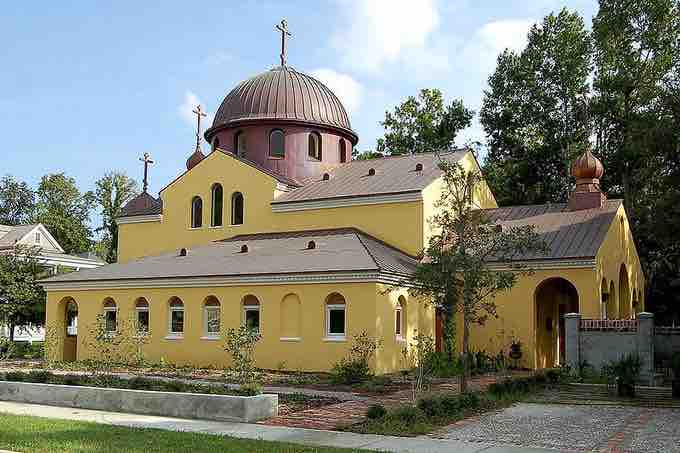The Christian Church is the assembly or association of followers of Jesus Christ. The four traditional notes of the Christian Church are unity, holiness, catholicity, and apostolicity. In the New Testament, the term "church," which in Greek meant "assembly," is used for local communities, and in a universal sense to mean all believers. In the Christian religion, a church is the building or structure used to facilitate the meeting of its members.
The "Original" Church
The early Church originated in Roman Judea in the first century AD, founded on the teachings of Jesus of Nazareth, who is believed by Christians to be the Son of God and Christ the Messiah. It is usually thought of as beginning with Jesus' Apostles. The Eastern Orthodox Church and Oriental Orthodoxy each claim to be the original Christian Church. The Eastern Orthodox Church bases its claim primarily on its traditions and beliefs of the original Christian Church. By contrast, the Catholic Church teaches in its doctrine that it is the original Church founded by Christ on the Apostles in the 1st century AD. Since the Protestant Reformation, most Protestant denominations interpret "catholic," especially in its creedal context, as referring to the Protestant concept of an eternal, invisible church of Christ and the Elect. Anglicans generally understand their tradition as a a middle path between Roman Catholicism and Eastern Christianity on one hand, and Protestantism on the other.
Churches of Christ
Churches of Christ are autonomous Christian churches associated with one another through common beliefs and practices. They seek to base doctrine and practice on the Bible alone, and seek to be New Testament congregations as originally established by the authority of Christ. Members of Churches of Christ believe that Jesus founded only one church, that the current divisions between Christians are not God's will—the only basis for restoring Christian unity is the Bible. Many Protestants believe that the Church, as described in the Bible, has a twofold character that can be described as the visible and invisible church. The invisible church consists of all those from every time and place who are vitally united to Christ through regeneration and salvation and who will be eternally united to Jesus Christ in eternal life. The visible church—the institutional body on earth which preaches the gospel and administers the sacrament—consists of all those who visibly join themselves to a profession of faith and gathering together to know and serve the Head of the Church, Jesus Christ.
Political Significance
Churches can also have political significance around the world. State churches are organizational bodies within a Christian denomination, given official status or operated by a state. State churches are not necessarily national churches in the ethnic sense of the term, but the two concepts may overlap in a nation state where the state boundary largely corresponds to the distribution of a single ethnic group defined by a specific denomination. State churches, by contrast, may also be minority denominations which are given political recognition by the state.

Holy Ascension Orthodox Church in Mount Pleasant
Different Christian Sects construct their own Churches, which are their places of worship